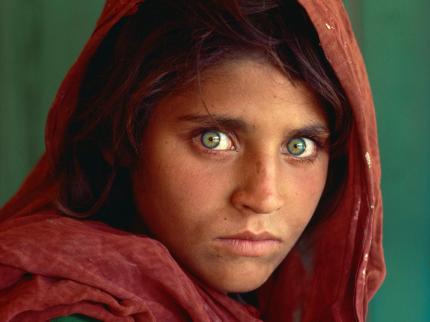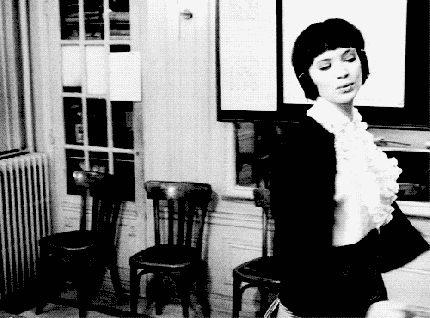Something draws me to Eastern Europe. I blame Romania. Thank you Romania! Yes, there was something about the ambiance which director Cristian Mungiu conjured up in 2007’s 4 Months, 3 Weeks and 2 Days (4 luni, 3 săptămâni și 2 zile) which has stayed with me for a long time.
Really, it’s a rather mundane part. Near the top of the film. The goddess Anamaria Marinca traipses down the hall to find some soap…and cigarettes. The scene is a college dormitory in communist Romania (pre-December 1989). Girls in one room chat about beauty products. There seems to be a good bit of bartering going on. Marinca is mainly uninterested. Looking for a certain kind of soap (if I remember correctly). On the way back to her room she stops off at the room of a foreign student (non-Romanian) who sells cigarettes and gum and stuff. The whole film she is searching for Kent cigarettes (a few mentions of this brand). Not surprisingly, there are no Kents to be had in the dorm. She settles for something else. Perhaps. I don’t know.
She stops and admires some kittens which someone has taken in.
It is astonishingly real. On par with Roberto Rossellini.
Indeed, it might be said that all New Waves (from the nouvelle vague to the Romanian New Wave) have their birth in the neorealist films of Rossellini.
But Mungiu added a new wrinkle.
Marinca. [The goddess of whom I spoke.]
Marinca is unglamorous. No one is glamorous in 4 luni, 3 săptămâni și 2 zile. We get the impression that it is the waning days of Ceaușescu’s reign.
Times are tough. The policies of the state haven’t worked out so well. It bears some resemblance to a prison. Material items take the place of money (reminiscent of cigarettes as currency in jails).
What I have yet to define in this article is “goddess”. What do I mean by that?
Well, I’m glad you asked! Marinca (particularly in this film) is a goddess to me because she represents the opposite of the typical American woman in the year 2015. Her beauty is her soul. Her beauty is her loyalty to her roommate and friend Găbița. Her beauty is her dedication to acting. She is completely immersed in her unglamorous role…and it is eye-watering.
I have mentioned a similar impression (which further solidified my admiration for Romanian films) I got from watching Dorotheea Petre in The Way I Spent the End of the World (Cum mi-am petrecut sfârşitul lumii). This masterpiece by director Cătălin Mitulescu preceded Mungiu’s Palme d’Or-winning film by about a year (2006). I was again struck by another goddess of film (Petre) who, with the help of her auteur, created a character also in direct opposition to the meretricious, vacuous ideal of American womanhood in the 21st century.
And so it is that we finally come to the film under consideration: Душан Макавејев‘s Love Affair, or the Case of the Missing Switchboard Operator. Dušan Makavejev is Serbian. Out of deference to his country I have listed his name in Cyrillic script. Likewise, the title of the film (at the top) is in Serbo-Croatian. It is a grey area about which I am not completely informed. Suffice it to say that Croatia seems to generally use Roman letters (as opposed to the Serbian usage of Cyrillic). It is a bit like the distinction (and writing differences) between Urdu and Hindi [which I have heard described as essentially the same language, but with two different writing systems].
I prefaced this article on Ljubavni slučaj ili tragedija službenice P.T.T. with my own backstory concerning Eastern European cinema because it is relevant to my approach going forward.
Before coming to this, my first Yugoslav (1967) film, I opened up the can of worms which is Czech cinema by reviewing Closely Watched Trains (Ostře sledované vlaky). Jiří Menzel’s sexually-charged film poem from the previous year (1966) was a major revelation for me. And so it is that Dušan Makavejev’s bittersweet confection shares more than just a communist framing with Menzel’s aforementioned erotic portrait.
Yes, Ljubavni slučaj ili tragedija službenice P.T.T. is about our old film-school standbys: sex and death. I can never combine those two words (in the context of film) without remembering the ridiculously funny scene of Jim Morrison at UCLA screening his student film in Oliver Stone’s The Doors (1991).
The fictional Morrison, then, would be trying to hop on a nonfictional bandwagon represented by the likes of Menzel and Makavejev. Morrison’s time at UCLA (1964-1965) not only coincided with the staggered births of “new waves” around the world (particularly in Europe), but also occurred while Morrison’s father (US Navy Rear Admiral [RADM] George Stephen Morrison) was the commanding officer of a carrier division involved in the Gulf of Tonkin incident.
Jim Morrison lived fast. Entered UCLA in 1964. Graduated with an undergraduate degree in film in 1965. Was dead by 1971. But those years in between… It’s no wonder Jim had an Oedipal complex (evident in the song “The End” [1966/1967]) when considering his father was involved in false-flagging the U.S. into a suicidal war against communism. What a disgrace…
No, the real hero in the family was not RADM Morrison, but rather Jim. He turned on the dream-switches of so many kids. To put it quite bluntly, he was part of the counterculture in America which caused kids to start giving a fuck about the world and politics and geopolitics and confirmed charades (frauds, shams, etc.) like the Gulf of Tonkin “incident”. Such a sanitary and slippery word: incident.
It fits perfectly, in that there was no incident.
But while Morrison the Younger had gone off into Brechtian pop-rock, Serbian director Makavejev was busy making Love Affair, or the Case of the Missing Switchboard Operator. It is equally stunning, for its medium, as “The End”.
Sex needs beauty. A really luscious film like this needed Ева Рас (Eva Ras). She is a bit like Jitka Zelenohorská’s character in Closely Watched Trains…mischievous, bewitching… But there is one great difference between Ras and Zelenohorska: Ras is a blond.
Though our film is in black and white, it is clear that Ras’ silky hair is rather fair (a detail which would not have escaped Hitchcock). It must be said, however, that Makavejev did not give in to the easy femme fatale portrayal when it came to filming Ras. Izabela (Ras) is a complex individual. The film tells us that she is Hungarian. She is different…other. She needs sex. She is passionate.
All the same, her portrayal by Ras is poetic and tender. Really, what we are seeing here is a tentative feminism expressed by Makavejev which would become a thundering symphony of women’s liberation in Mungiu’s 4 Months, 3 Weeks and 2 Days.
And it is good. It is good for men to see these types of films. We men idolize and reify women in the West, but we don’t often enough stop to really observe the trials of womankind.
In the best spirit of socialism, this film has something for everyone…men, women…ok, maybe not children.
Love Affair, or the Case of the Missing Switchboard Operator is really an intense film. If you have seen (and made it through) Stan Brakhage’s The Act of Seeing with One’s Own Eyes (a film I, incidentally, once made the mistake of showing at a party), then you’ll be alright. For those faint of heart (I generally fall into that category), there are a couple of rough moments in this film (in the context of criminology).
In all, I am very proud and happy to have seen my first Serbian movie. As a resident of San Antonio (and fan of the San Antonio Spurs), I feel it gives me a better glimpse into the life of one of my favorite basketball players Бобан Марјановић (Boban Marjanović). I highly recommend this film…and Go Spurs Go 🙂
-PD

